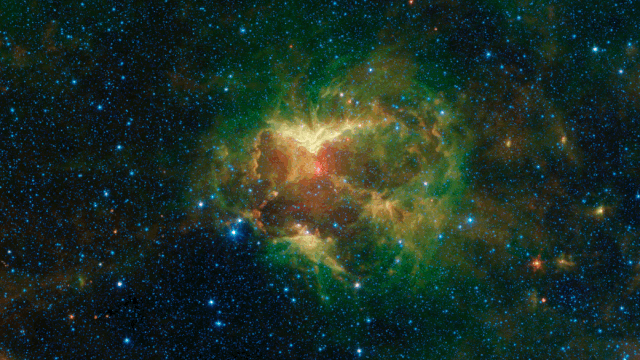Hubble Telescope Capture Sightings of Ghosts in Outer Space?
The Hubble Telescope has now succeeded in capturing a new image capture in the deepest space of outer space. This time the capture was an extraterrestrial object that looked like a creepy face with glowing eyes.
After analyzing it, it turned out that the eyes that were so sharp on that part of the face were the nucleus of two galaxies that were so far away and shining brightly. The two of them are right in the middle of a direct collision and are surrounded by a mixture of stars from the galaxy.
The Hubble Telescope Captures Ghosts in Outer Space?

The circle of blue bermuda stars surrounded him and formed a terrifying face. While the constellation of stars is so dense it looks like a nose and a mouth.
However, this face which is called an extraterrestrial ghost does not continue to keep an eye on outer space forever. The structures found today are estimated to last up to 100 million years. Meanwhile, it is estimated that the merger of the two galaxies will take 1-2 billion years. That’s what NASA said, as Dafunda Tekno quoted from Space.com.
Collisions Between Galaxy
Galaxy collisions are familiar and often occur in outer space. However, direct collisions that occur in two galaxies like this are arguably rare and this collision will appear in a distinctive ring shape.
“The galaxies to form the ring require collisions in the right orientation,” said NASA.
“These collisions attract and can stretch the disk of gas, dust, and galactic stars outward. things like this can form a ring of stars that is so dense and shaped like a nose and face, “he added.
But the rings of these galaxies are also not the thing that makes the merging of galaxies so special. This is because the two galaxies that are incorporated here have almost the same size.
So keep in mind, most of these galaxy collisions will make the large galaxy will devour the small. Even the Milky Way galaxy itself is the culprit.
Posting Komentar untuk "Hubble Telescope Capture Sightings of Ghosts in Outer Space?"